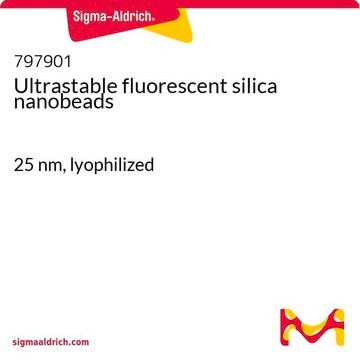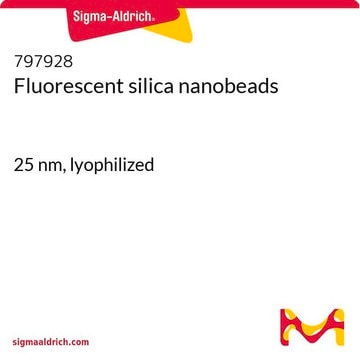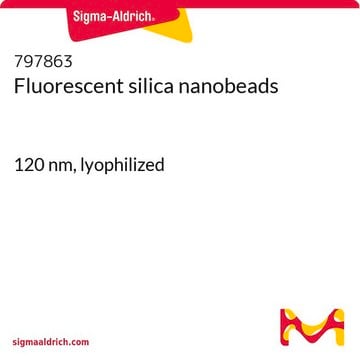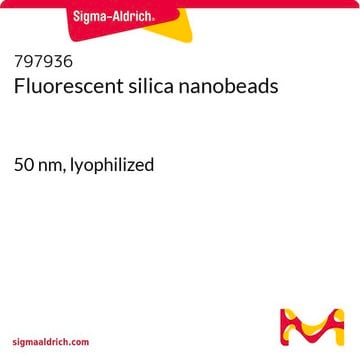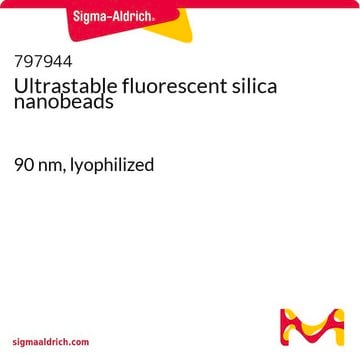797952
Ultrastable fluorescent silica nanobeads
50 nm, lyophilized
Synonym(s):
Fluorescent Silica, Fluorescent Silica nanopowder, Silica nanobeads
About This Item
Recommended Products
Quality Level
form
powder
particle size
50 nm
fluorescence
λem 590 nm
UV absorption
λ: 570 nm Amax
storage temp.
2-8°C
Looking for similar products? Visit Product Comparison Guide
Application
Storage Class Code
11 - Combustible Solids
WGK
WGK 3
Flash Point(F)
Not applicable
Flash Point(C)
Not applicable
Certificates of Analysis (COA)
Search for Certificates of Analysis (COA) by entering the products Lot/Batch Number. Lot and Batch Numbers can be found on a product’s label following the words ‘Lot’ or ‘Batch’.
Already Own This Product?
Find documentation for the products that you have recently purchased in the Document Library.
Customers Also Viewed
Articles
RAFT polymerization controls chain growth, yields defined polymers without cytotoxic heavy metals like ATRP.
RAFT polymerization controls chain growth, yields defined polymers without cytotoxic heavy metals like ATRP.
RAFT polymerization controls chain growth, yields defined polymers without cytotoxic heavy metals like ATRP.
RAFT polymerization controls chain growth, yields defined polymers without cytotoxic heavy metals like ATRP.
Our team of scientists has experience in all areas of research including Life Science, Material Science, Chemical Synthesis, Chromatography, Analytical and many others.
Contact Technical Service